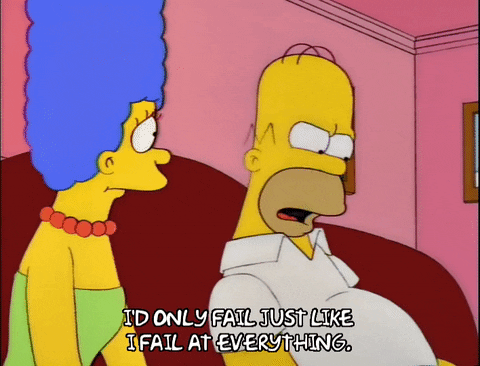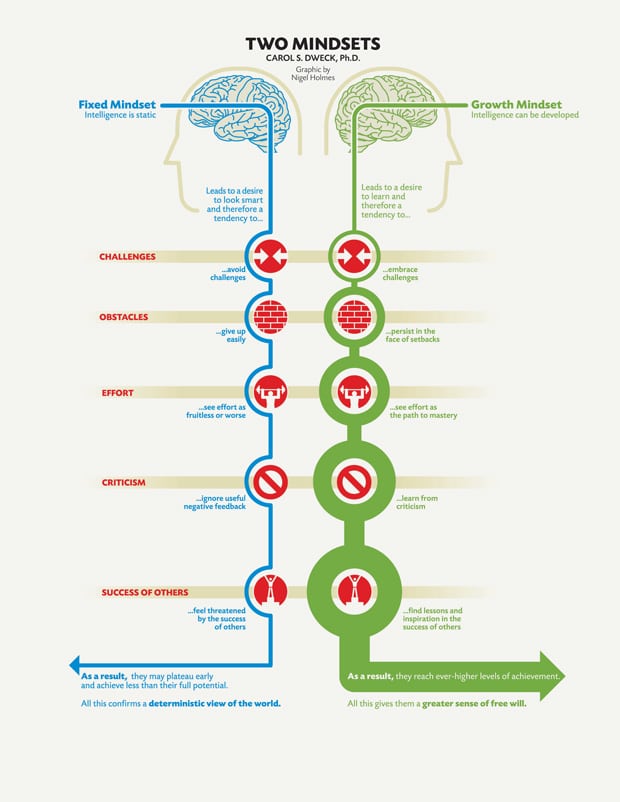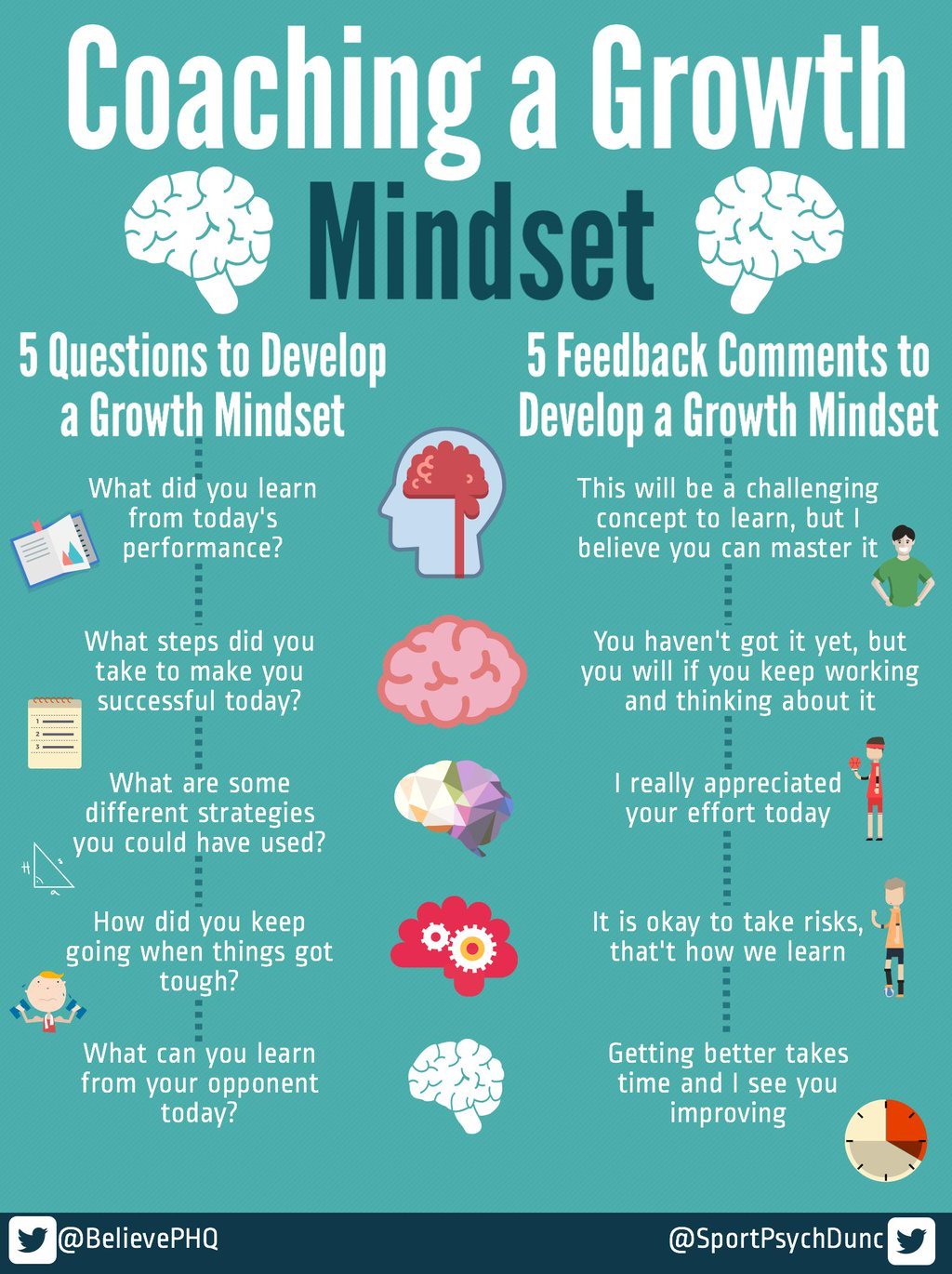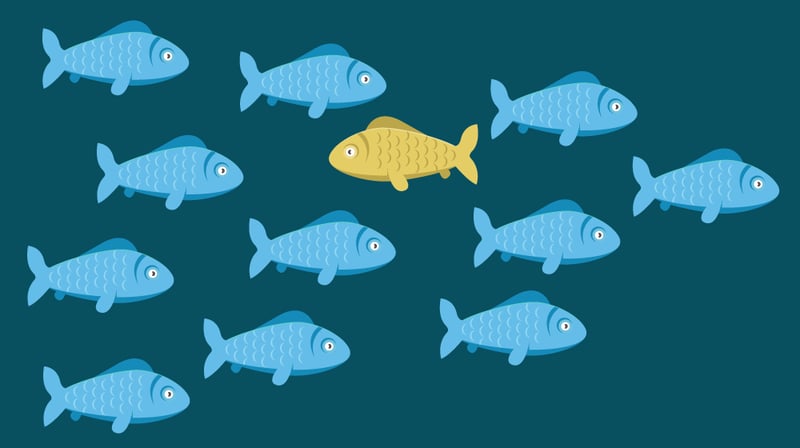Can you imagine how different our lives might be if we focused on our potential, rather than our failures?
It’s easier to focus on the negative (what we’re not good at) and it can be difficult for us to feel like we can improve.

But there is another way to look at ourselves and what we’re capable of. It’s transformational and is equally applicable to our students. It’s the growth mindset and cultivating it can have a hugely positive impact that only continues to compound over time.

Growth mindset has been popularized a lot recently by Carol Dweck (check out her TED Talk on the subject) and really connects with the modern self-help movement. It boils down to the fact that the change we want to see and the improvements we want to achieve in our lives exist within ourselves.
We just need to change our mindset from the limited fixed mindset. This may seem simplistic, but we all have those times where we get in our own way and are our own worst enemies. Unlocking the potential of a growth mindset works to resolve this barrier that many of us frequently face.
A lot of people fall into some fallacies when trying to implement a growth mindset into their organizations. Carol Dweck details some of these, like simply espousing that you are fostering a growth mindset without actually doing the work, and praising effort without focusing on outcomes. Being aware of these potential pitfalls from the get-go allows you to make this a deeper experience for both the coach and the person expanding their mindset.
So what does it take to successfully implement a growth mindset in ourselves and others?
Obviously, it can be easier said than done to get out of our comfort zone, try new things, meet new people, and explore new places.
As student affairs professionals, we can help support students through this and even just as good humans, we can guide those around us through difficult transitions.
Sometimes all it takes is asking the right questions or giving the right feedback. Check out this infographic for some examples:

Building off this, think of how you can use these sort of questions when you’re advising student organizations who might struggle to get engagement at their events. Or a student government that felt like they didn’t get the results they wanted from a recent initiative. Or perhaps a Resident Assistant you supervise who been really hard on themselves and having a hard time balancing everything. These are all instances where a deft, empathetic hand can make a positive difference.
Your student can reflect on what went well, how they felt, and what they can work on next time. They can see the progress they’ve made over time and feel like they have the capacity to improve.
This equally applies to our professional staff colleagues.
Our demanding work can make us feel frustrated and like we aren’t making any headway. Our work in higher ed tends make us feel vulnerable and frustrated when the going gets tough. Keeping a growth mindset and committing to supporting it in others will help as best we can to manage those feelings of frustration.
Beyond this, work to expose yourself to diverse thoughts and experiences by going out to new restaurants, museums, or stores in your community. You can travel to new places (perhaps to visit friends who have moved away?) or volunteer with a local organization. Lastly, you could go out for networking events or other social activities to see what other people do for fun in your area or around campus. You may even be able to build some new community connections to help with your efforts.
Fostering a growth mindset in yourself and others can be a fun experience if you let it and especially if you do it with other people you know to help support you. Sometimes the things you do won’t be for you, but it will still be helpful to try. You’ll learn that you’re capable of more than you might have initially believed.
How do you foster growth mindset with yourself or your students?
Let us know on Twitter, @HigherEdGeek and @themoderncampus.





